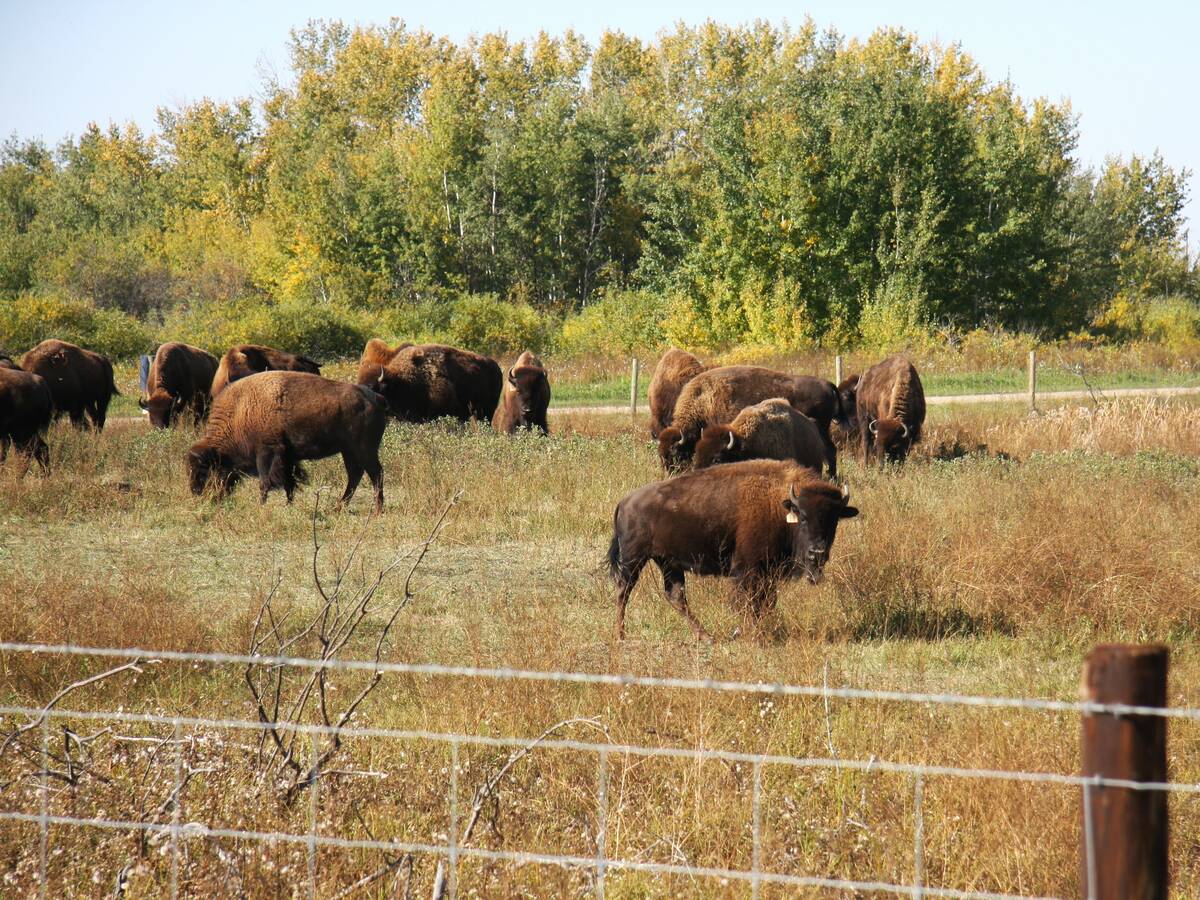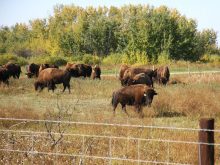The former Canadian Wheat Board has taken its first steps toward privatization, unveiling a two-pronged plan that includes establishing a network of grain handling facilities across Western Canada and offering prairie farmers an equity stake in the soon-to-be privatized company.
Gord Flaten, CWB’s vice-president of grain procurement, said prairie farmers will receive $5 worth of equity in the privatized CWB for each tonne of grain they sell through CWB in the 2013-14 crop year.
The company did not make a formal public announcement about the equity offer, but details of its plan were posted on the CWB website last week.
Read Also

National Day for Truth and Reconciliation: Acknowledging the past, seeking a better future
How can the treaty rights of Indigenous peoples be honoured in a way that gives them a proper seat at the table when it comes to farming in Canada?
CWB officials are also in the process of contacting farmers and grain handling companies directly to inform them of the equity arrangement.
The plan is subject to successful privatization and to CWB receiving all required legal, regulatory and governmental approvals, according to information posted on the CWB website.
CWB has yet to share other key details related to privatization, including how it intends to finance its proposed network of grain handling facilities, a capital investment strategy that could conceivably require hundreds of millions of dollars.
But Flaten said earlier today that CWB has identified a number of potential corporate partners that could play a role in helping CWB transition from a government-backed marketing agency with no grain handling assets to a private-sector company with country elevators and an ownership structure that includes farmer equity.
“There are many details to work out, but (our plan) consists of two main pillars,” Flaten said.
“The ownership structure that would include farmers is one of those pillars and the second is the development of a network of grain handling assets across Western Canada.”
“We are going to be announcing details of the grain handling network at a later date, but right now we’ve decided it’s important to inform farmers and our grain handling agents about the farmer ownership component so that when farmers are making their decisions about marketing this fall, this information will be available.”
Flaten did not offer a timeline for reaching a privatization agreement but said CWB officials are eager to have a deal negotiated, approved and executed well in advance of a government imposed August 2017 deadline.
He also declined to share details on what companies have been identified as likely corporate partners or the form that farmer equity would take.
One likely scenario would be the conversion of farmer equity into shares that could be bought or sold at the owner’s discretion.
“Exactly how that’s going to be structured still needs to be determined but (conversion to shares) is one obvious option,” Flaten said.
“We just need to be cautious in describing exactly how it’s going to happen because whatever we do, it’s going to be subject to approval by regulators and by the government.”
Information contained on the CWB website said the company does not anticipate any problems in acquiring necessary approvals.
“At this point in time, we anticipate a successful outcome to all of these steps,” CWB said.
Farmer response to the CWB’s equity plan has been muted, largely because information related to the plan has been slow to emerge but also because the majority of Western Canada’s grain farmers are still knee-deep in harvest operations.
According to the CWB website, any farmer who delivers grain against a 2013-14 CWB contract is eligible to participate in the equity plan.
All grain committed to CWB’s 2013-14 pooling programs is eligible, as are cash contracts signed between Aug 1, 2013, and July 31, 2014.
CWB has already begun tracking sales information to determine equity allocations.
Stephen Vandervalk, president of Grain Growers of Canada and Alberta vice-president with the Western Canadian Wheat Growers, said he learned about the CWB equity plan via email.
“I actually have not heard many details about it,” Vandervalk said.
“I saw it on an email that came across my phone while I was harvesting and … I haven’t had a chance to look at it since.”
Vandervalk said many farmers will likely be wondering why equity in CWB is only to be offered on CWB sales made in 2013-14.
“I’m not all that happy with people only getting equity who are contracting with the CWB now,” he said.
“The CWB is where it’s at because of all the farmers who have been selling their grain for the last 70 years.”
Vandervalk said some producers have already contracted a significant portion of their 2013-14 crop to other companies.
Those farmers couldn’t take full advantage of the CWB equity offer even if they wanted to.
Geography is also a huge factor in determining where a farmer sells his grain.
Contracting through the CWB is a more attractive option to farmers in one region than it is to farmers in another.
“I’m not sure why they are just picking one marketing year,” Vandervalk said.
“In my mind, they should look at sales over the last three or five or seven years, and every farmer should get equity automatically based on those volumes. I mean, you’ve got to pick a number, but it shouldn’t be just based on what you haul (to CWB) this year.”
Flaten said current regulations prohibit the CWB from offering equity retroactively, meaning sales made through the CWB before 2013-14 cannot be included in the equity deal.
Another farmer who contacted the Western Producer yesterday said the fact that CWB equity will only be offered to farmers who deal with the CWB in 2013-14 will leave a bitter taste in many growers’ mouths.
“My details are sketchy, but it just struck me as being unfair,” said the Manitoba grain grower who spoke on the condition of anonymity.
“I’m glad the board is gone or that we’ve gone to a dual market, but as pro-dual marketing as I was, I still felt that a lot of us got shafted with equity that we did have in the board,” he said.
“For us not to get any equity from the millions of dollars that were in the contingency fund and the rail cars and the lakers that were started, I think that’s a raw deal for all farmers.”

















